
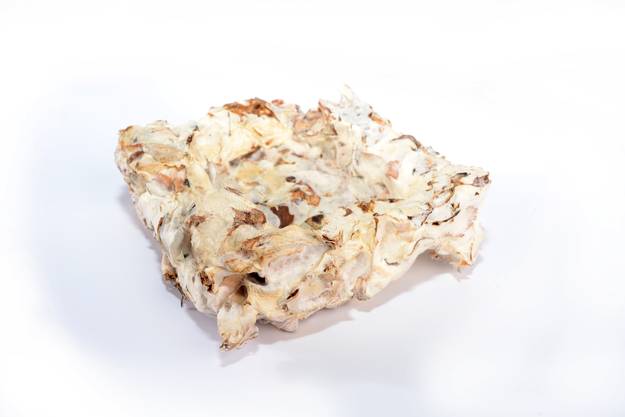
Experimental materials lab Ecovative are working with mycelium or mushroom 'roots' to create a sustainable alternative to plastic. Unlike traditional bioplastics that use edible food crops as the raw matter, this solution repurposes wasted agricultural byproducts like stalks and husks. The mycelium 'digests' the waste, binding it together to form a hydraponic, renewable, compostable, all round good-guy substitute for conventional plastics. Varying feedstocks can be used to alter the material properties like density and texture for different applications from insulation to packaging.
Whilst it's not yet available for commerical use, the New York firm are exploring real-world applications from cushioned seating to styrofoam-style packaging in a temporary residency project at Amsterdam's Tech arts centre, Mediamatic. Their materials lab forms part of the centre's urban mushroom farming exhibition Paddestoelen Paradijs.
It's another example of the 'grow your own' materials trend (see Xylinum Stool) cultivating bacterium, cellulose and other organic matter to engineer sustainable materials charged with super-natural properties.
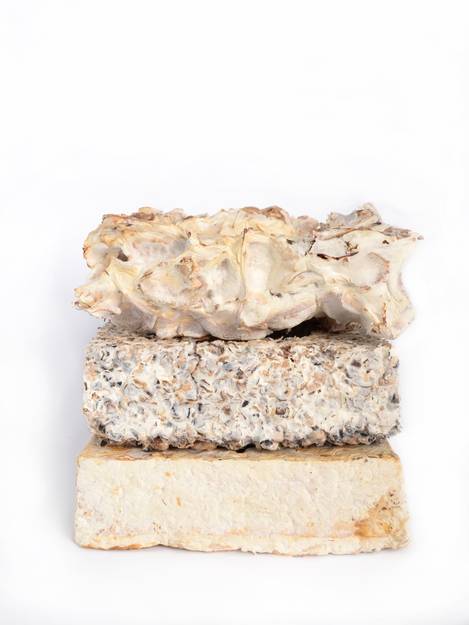
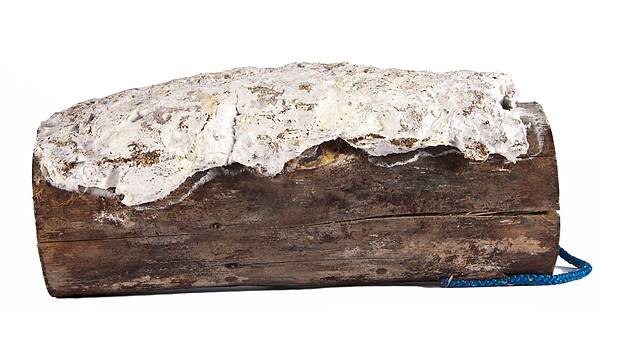
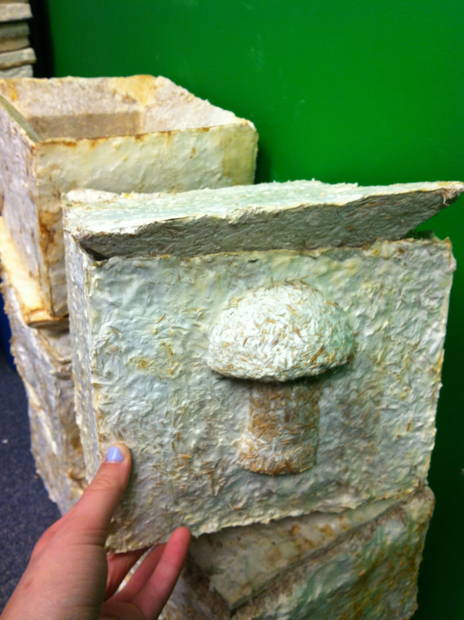
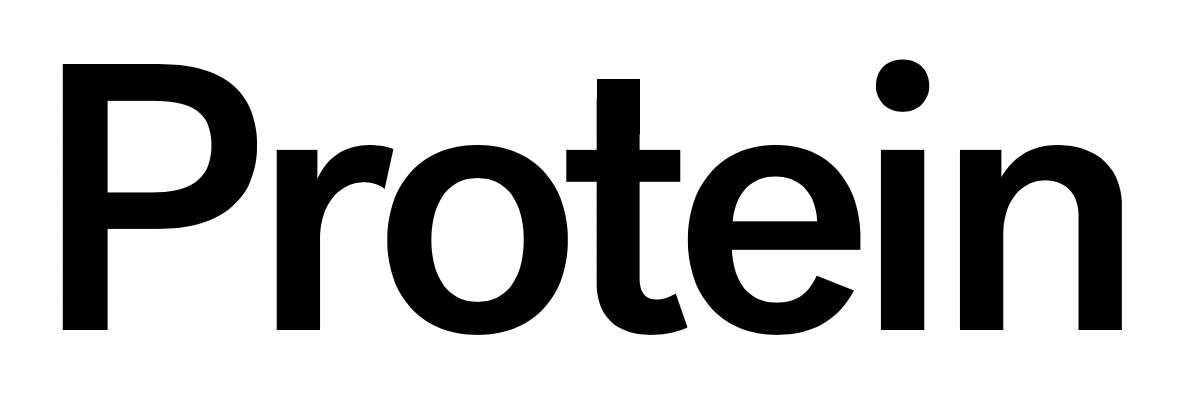

Discussion